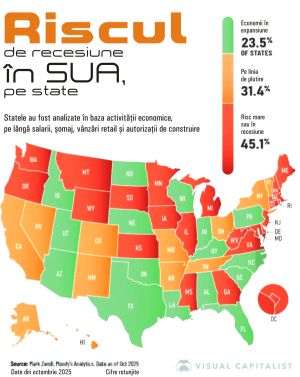Reporter: From recent BVB information it is understood that CCP.RO has reached an agreement with the provider of the technological solution for the Central Counterparty. What does the agreement that was reached consist of and what does it imply compared to the agreement signed with CC&G (the current Euronext Clearing) in 2020?
Adrian Tănase: We will still operate under the Euronext license, but the big difference is that before Euronext offered us both the technological solution and the support and development services. Now we will have the same technological solution, but the support will be done by another entity. This is the change that generated the situation in April. Euronext no longer wanted to allocate resources for our project and recommended another technology company for the support and development part, find all the details in Annex 2 of the new Business Plan.
We will still be operating under a Euronext license, with the same technology tested and audited in the authorization process that we have gone through so far, but the support in terms of maintenance and further developments will be done by another company. A third entity appeared in the picture.
Another difference is that, if until now the technology ran on the Euronext infrastructure, i.e. it was a "hosted solution", now it will run on the CCP.RO infrastructure. For that we had to order some equipment, which we have already received.
These changes also generated the difference in costs from the Business Plan.
Reporter: In the supporting documents of the points of the general meeting of BVB shareholders from the beginning of September, it is mentioned that five million euros are still needed for the operationalization of the Central Counterparty. What is the destination of this money?
Adrian Tănase: With the change of the plan, some additional investments and costs became necessary. The most important are related to the purchase of this equipment that has already been received, as well as the costs with the new supplier. In Annex 2 of the Business Plan you can find a comparison, from the point of view of payments, between the situation before and now. Part of the money we have to give in addition is CAPEX (no capital expenditure) and another part OPEX (no operational expenditure). Basically, compared to the original plan, there are some differences that we have to finance. Some payments will be made as they arise, but for the sustainability of the project we need to have shareholder commitment to fund these differences demonstrated at this time as part of the authorization file.
Reporter: Why did Euronext Clearing withdraw from the contract with CCP.RO in April?
Adrian Tănase: Euronext wanted, first of all, to generate a change in the collaboration with CCP.RO, this manifesting itself, yes, by withdrawing from a contract and proposing another contract, this last contract being now proposed for approval to the shareholders of CCP.RO. The reason, as I mentioned before, was Euronext's desire to allocate internal resources for other purposes. Regarding our project, they referred us to another vendor for future support and development. This is because, compared to the moment when we signed the contract with CC&G in 2020, the institution has changed its strategy a lot. It has become the Central Counterparty of the entire Euronext Group, so it wants to focus its resources on other directions. For us, Euronext's decision was not good news, especially since we were quite close to having the complete file for authorization. But, at least so far, Euronext's openness to helping us through this transition period has been total.
Reporter: The Financial Supervisory Authority intends, at the request of CCP.RO, to extend by 90 days the deadline by which the entity intended to function as a central counterparty in our country must submit the complete file necessary for authorization, compared to September 8 what is the deadline now. What other documents must CCP.RO provide for the file to be declared complete?
Adrian Tănase: The new deadline is December 8, but we want to finalize the file much earlier.
There are two things we need to bring to the record. One is the new Business Plan with shareholder approval. CCP.RO shareholders are convened on September 4/5 to approve the Business Plan, the capital increase of CCP, the eight-year license contract with Euronext and the contract with the new provider of support services and further developments of the technological solution. I hope that the shareholders will approve all these points so that we can provide the Financial Supervisory Authority with proof that the shareholders agree with the new direction of the project.
The second part is related to technical tests. Now we have another project setup, with our own infrastructure and another service provider, so we have to redo a series of system tests. By and large, the tests will be similar to those carried out so far, but other scenarios can be tested. We are still in discussions with the authority about when we will conduct the tests and the scenarios we will test. The authorities, our internal and external auditors will participate in these tests, who will prepare some reports that will be submitted to the file.
I am optimistic and believe that we can tick off these two elements, the approval of the new Business Plan and the testing part, in September.
Reporter: What are the steps that will be taken after the CCP.RO file is declared complete by the Financial Supervisory Authority?
Adrian Tănase: The complete declaration of the file does not guarantee the receipt of the authorization, but it represents a very good signal given by the local authority. There is a college established at the ESMA level, within which the ASF will present an evaluation report of our project, and based on that evaluation, the college will give a positive or negative opinion related to the authorization. As I said, with the declaration of the file as complete by the local authority, there is a very high probability that the opinion of the college will be positive. Later, based on the positive opinion, ASF issues the operating authorization.
Reporter: A press release from the ASF talks about the amendment of the European legislation concerning the authorization of central counterparties (EMIR 3.0). When will this legislation be amended and what impact does or can this have on the CCP.RO project?
Adrian Tănase: Our objective is for the file to be fully declared on the EMIR 2 regulation.
We do not know when the legislation will change, and if somehow EMIR 3 is implemented and we do not have the file fully declared at that time, we have to restart the entire authorization process, based on the new regulation. It wouldn't be a disaster, but we don't want to get there and I'm optimistic about the current premises, to have the full file under EMIR 2.
Reporter: The Central Counterparty project was approved by BVB shareholders at the beginning of 2019, and according to the original plan, the entity was supposed to be operational during 2020. Why is there this delay in the realization of the project?
Adrian Tănase: The Covid pandemic was quite an important element, especially since our partner in the project is from Italy, one of the countries most affected by Covid.
The contract with CC&G (now Euronext Clearing) was signed in October 2020, after which we started building the file, which took longer than we expected. Even though we had a partner who helped us, building a central counterparty is a process that no one in Romania has gone through before and which turned out to be more complex than we expected. The initial estimate was too optimistic. On top of all this, in April came the decision of Euronext, which surprised us and to which we have to adapt.
The Central Counterparty project is critical to our capital market infrastructure, requires a lot of attention and has received a lot of attention from stakeholders, and the effort put in by all parties involved, including the authorities, has been and is significant.
Reporter: Considering that everything will go according to the Business Plan now, when do you estimate that the Central Counterparty will become operational?
Adrian Tănase: In the second part of 2025. The authorization is received within six months at most from the declaration of the complete file, after which it takes about two months until operationalization. Some contracts must be signed by the market operators, by the clearing members, the systems must be certified in the production environment; there are a number of steps to be taken until operationalization. When the CCP is operational, the trading platforms related to the Bucharest Stock Exchange and OPCOM will also be operational. Equity and index futures markets are already authorized by the ASF and we are in advanced discussions for energy futures.
Related to the new Business Plan, a new element facilitated by this change in technological setup is the prioritization of the Securities Lending and Borrowing (SLB) product, a product that was not included in the road map of the old contract. These operations are very important from many perspectives: development of short selling, development of market making activity including for derivative products, with a potentially important effect on the liquidity of the spot market. These operations are planned to be introduced in mid-2027.
Reporter: What message do you send to the shareholders of BVB and CCP.RO?
Adrian Tănase: The Central Counterparty project has great potential from an economic point of view, especially thanks to the collaboration with the energy market. I hope our shareholders see this potential and put the additional costs that have arisen on the back burner. We want to materialize this potential of the collaboration between the Bucharest Stock Exchange and OPCOM, through the Central Counterparty. I believe very much in the potential of the project from this perspective and now we have the opportunity to materialize it.
Reporter: Thank you!























































